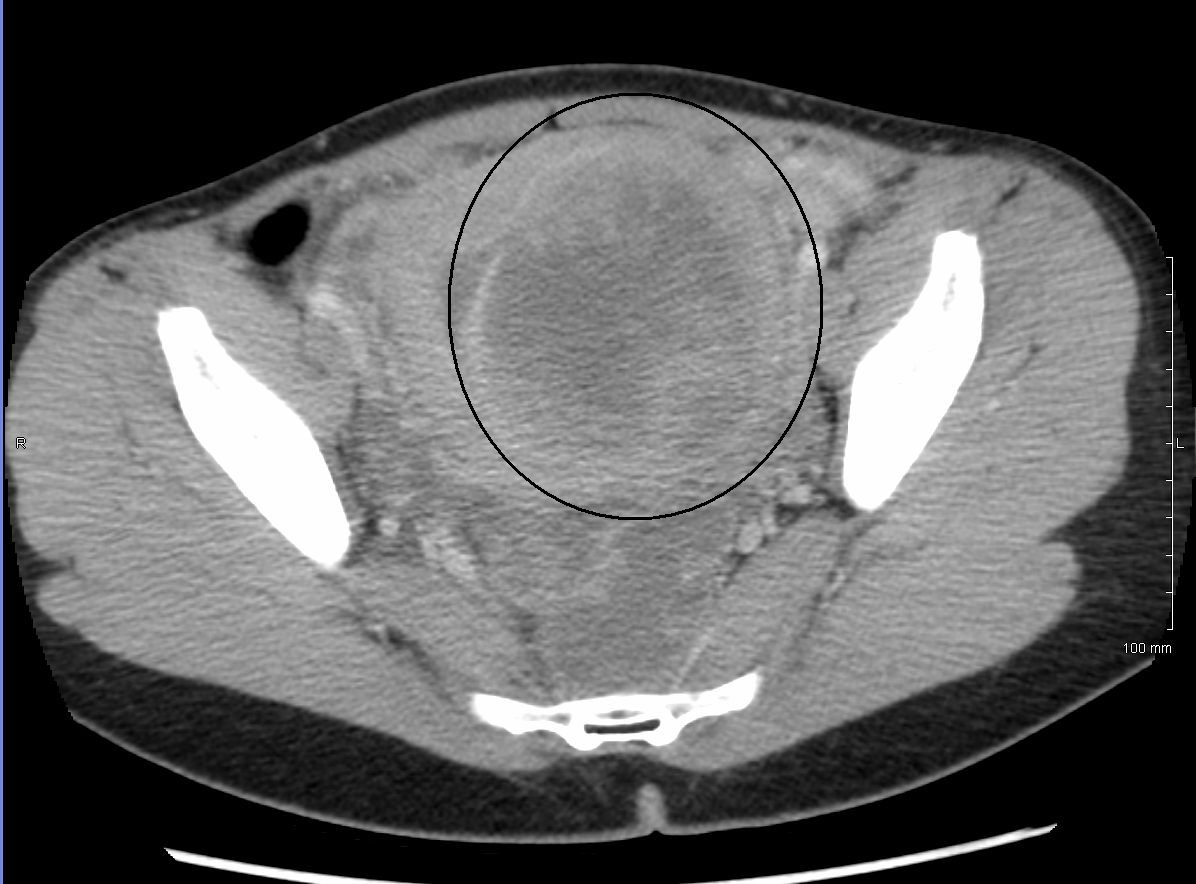Many women have periodic pelvic pain – especially related to their period. But if you suffer from pain that doesn’t go away, it may be a sign of something more serious. Millions of women worldwide develop problematic, sustained pelvic pain at some time in their lives; in fact, chronic pain-related complaints account for 10% to 15% of all gynecologic visits.[1] It’s often difficult to determine the cause of chronic pelvic pain, which can arise from the digestive, reproductive, or urinary tract system in women, or as a result of muscles, connective tissue, or nerves in the pelvic region.[2]
Imaging Can Help Diagnose the Cause of Chronic Pain
To determine what’s causing chronic pain (pain not associated with the menstrual cycle and lasts more than six months), your gynecologist will do a physical examination, a Pap test to rule out cervical cancer, and routine laboratory bloodwork before recommending diagnostic imaging.[3] If these are normal, imaging will be obtained to help exclude pelvic masses or fibroids. If none is found, pelvic congestion syndrome (PCS) might be the explanation.

Women with this condition experience constant dull and aching pain, which occasionally becomes more intense. They usually report worsening pain as the day goes on and after long periods of standing, with lying down providing relief. The pain may be worse during or after sexual intercourse and can also intensify just before the onset of the menstrual period. The pain of PCS is a result of veins around the ovaries and pelvic region becoming swollen and painful, similar to varicose veins in the legs. In fact, many PCS sufferers also have varicose veins in the thigh, buttock regions, or vaginal area.[4]
It can be hard to diagnose PCS, since these swollen veins are difficult to see on pelvic ultrasounds or CT scans. However, if a physician suspects this disorder is causing your chronic pain, a venogram can confirm the diagnosis.[5] This imaging test uses x-ray to monitor the flow of a contrast dye after it is injected into certain veins. The contrast makes it easier for the radiologist to see any problems or abnormalities in the veins and confirm varices (varicose areas) if they are present.
Embolization Therapy Can Treat Pelvic Congestion Syndrome
Once identified, PCS can be treated with embolization therapy. During the minimally invasive outpatient procedure, the interventional radiologist inserts a thin catheter, about the size of a strand of spaghetti, into the femoral vein in the groin and maneuvers it to the affected veins using X-ray guidance. In order to relieve the painful pressure, the interventional radiologist partially blocks (or “occludes”) the veins using tiny coils. A sclerosing agent is then injected, which helps shrink the swollen veins. This is the same type of material and process used to treat varicose veins in the legs.
The procedure is carried out under local anesthesia with intravenous sedation at the hospital. Like any invasive procedure, embolization therapy carries some risks, including that of infection or allergic reaction to the contrast agent, but these are minimal.
Embolization treatment is frequently very effective in reducing chronic pelvic pain and minimizing the amount of ongoing additional pain management necessary.[6] If you’re suffering from chronic pelvic pain, talk to your doctor to see if embolization treatment may be an option for you.
Iowa Radiology strives to deliver outstanding patient care from highly trained professionals utilizing state-of-the-art diagnostic imaging equipment. We offer a wide range of diagnostic and preventative imaging services, including pelvic ultrasounds, mammograms, CT scans, fluoroscopy, and more in the Des Moines area. If you have questions about mammography, click below to download our free eBook.
The information contained in the Iowa Radiology website is presented as public service information only. It is not intended to be nor is it a substitute for professional medical advice. You should always seek the advice of your physician or other qualified healthcare provider if you think you may have a medical problem before starting any new treatment, or if you have any questions regarding your medical condition.
Iowa Radiology occasionally supplies links to other web sites as a service to its readers and is not in any way responsible for information provided by other organizations.


